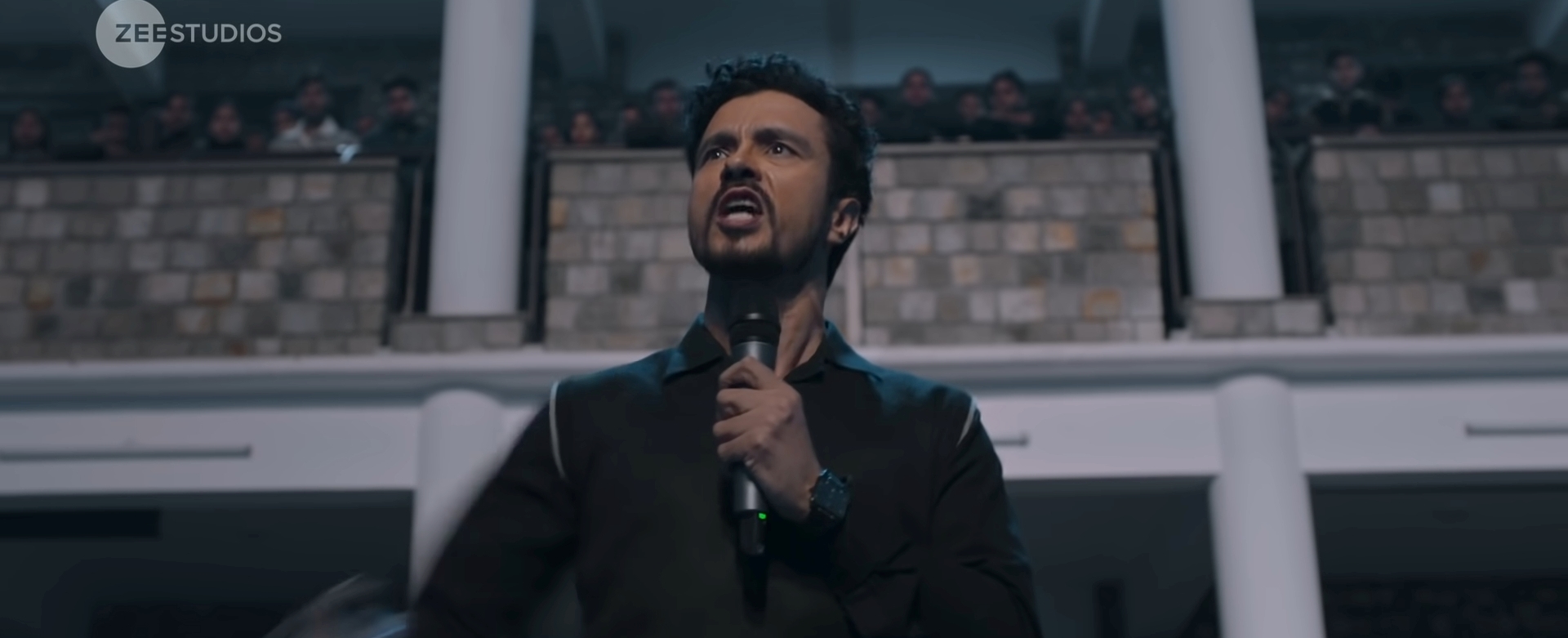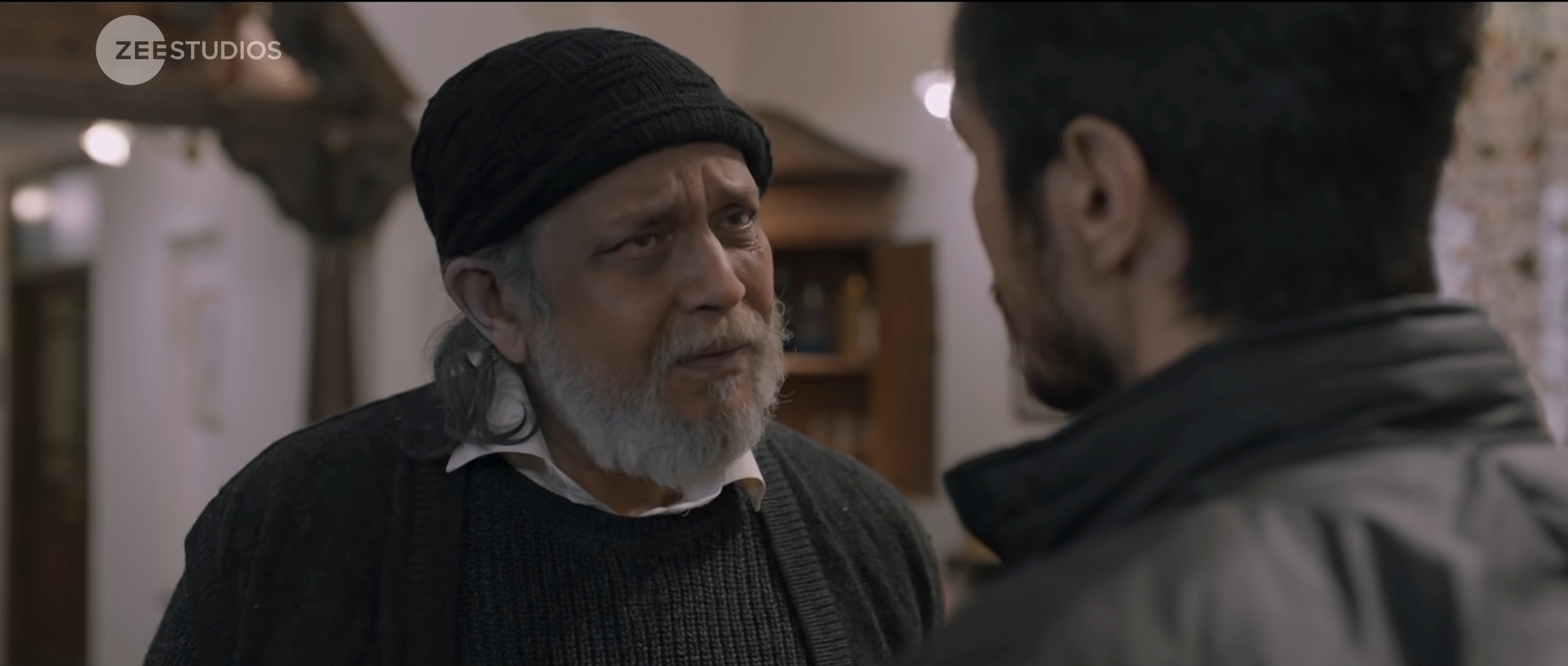Directed by Vivek Agnihotri, ‘The Kashmir Files’ is an Indian drama film in Hindi. The movie progresses non-linearly and follows the story of Pushkar Nath Pandit in 1990 and his grandson Krishna Pandit’s quest in the present. Krishna has been told several accounts of the events that transpired in Kashmir during the exodus. Eager to know the truth behind the tragedy that befell his family, Krishna embarks on a journey to the land of his forefathers to gain clarity and closure.
Interspersed with Krishna’s travels, the movie shows the story of Pushkar, who does not wish to leave the land he loves and grew up in. Despite the opposition, Pushkar stands his ground with his family. The heartwrenching movie depicts a story full of tragedy that leaves the viewer an emotional wreck. If you too are wondering about the truth behind this tale, here is everything we know!
Is The Kashmir Files a True Story?
Yes, ‘The Kashmir Files’ is based on a true story. The plot constitutes multiple stories told by the refugee Kashmiri Pandits. Vivek Agnihotri and Saurabh M Pandey wove the story after interviewing several Kashmiri emigrants. According to Agnihotri, he and his wife Pallavi Joshi talked to more than 700 victims of the exodus. Each and every story was listened to and recorded over the course of two years. The process left them both emotionally spent but determined to move forward with the project.
Ticket to exile: Bus ticket purchased by family on 19th Jan., 1990 when we were forced out of Kashmir. #KPExodusDay pic.twitter.com/dXBzVrKXoT
— Aditya Raj Kaul (@AdityaRajKaul) January 19, 2016
The exodus of Kashmiri Pandits or Kashmiri Hindus of 1990 refers to the mass emigration of the community from Kashmir. Back in the ’80s, following Sheikh Abdullah’s death, his son Farooq Abdullah became the leader of the Jammu & Kashmir National Conference political party. However, on July 2, 1984, the latter was disbanded by Congress, and in a short time, owing to local politics and other complex matters, there was discontent in the region, with some of the first Hindu-Muslim riots taking place in 1986.
The next year, elections were held, but it has been widely acknowledged that these were rigged. The consequence of this was that Farooq Abdullah was reinstated in power by Rajiv Gandhi. As per The Print, this is when members of the Muslim United Front became separatists. The Jammu & Kashmir Liberation Front (JKLF), a militant separatist organization, also stepped up its actions as well.
Several events — including the assassination of BJP leader Tika Lal Taploo — were indicative that Kashmiri Hindus were under attack. As per accounts, by the 90s, there were threatening slogans and warnings issued for the Hindus to leave the Valley amidst a growing anti-Hindu rhetoric. Many rallied against Kashmiri Pandits, who amounted to about 5% of the total population of the region at the time.
Given the violent nature of the movement, starting from January 19, 1990, the Pandits decided to leave Kashmir and took refuge in Jammu and other regions in India. This migration lasted for more than 10 years. Over the course of the decade, it has been estimated that at least 1,00,000 people — and up to 1,50,000 to 1,90,000 (as per some calculations) — were displaced from their homes. As far as the number of Kashmiri pandits killed during the time, there are contradictory reports. Some say over a thousand pandits were killed in the violence against the community, whereas there are also reports that peg the number of casualties to 219.

Anupam Kher takes up the role of Pushkar Nath Pandit in the movie; Kher himself is a Kashmiri Pandit. Darshan Kumar is in the movie as Pushkar’s grandson Krishna. Beloved actor Mithun Chakraborty portrays Brahma Dutt, an ex-IAS (Indian Administrative Service) officer who is fighting against the system. In an interview, Kher spoke about why ‘The Kashmir Files’ was such an important movie for him — “It is the truth about the exodus of Kashmiri Pandits which people had hidden somehow or the other. The judiciary, media, politicians, intelligentsia, writers… everybody just tried to put it under the carpet.”
Kher added, “When Vivek came to me about this film, when I heard the script, and he offered me this role, I knew I had to be a part of this story being told to the world.” The director himself was motivated by the plight of the community and stated, ” There are so many stories about India that reflect everything but the truth… We have always shown Kashmir as a haven of terrorism, but that’s not the only truth. I wanted to show the reality. I decided to make a film about people who did not pick up guns or abuse anyone, [instead, they] educated their children.”
Vivek further said that they did not wish to dissect the politics, they simply wished to relay a tale about humanity. To that effect, he explained, “There is a dialogue where someone asks – “Why didn’t they speak up?” and Mithun Chakraborty replies – “Broken people cannot talk, you make an effort to listen to them.” That is my message.” To conclude, the movie is not based on a single story but is instead an amalgamation of tales told by hundreds of victims of the conflict. The movie portrays a gruesome depiction of the often untold part of modern Indian history.
Read More: Is The Kashmir Files on OTT, Netflix, Prime, Hotstar? Where to Watch it Online?


You must be logged in to post a comment.